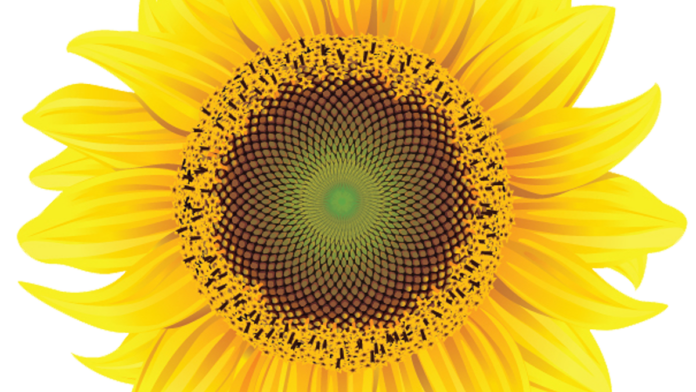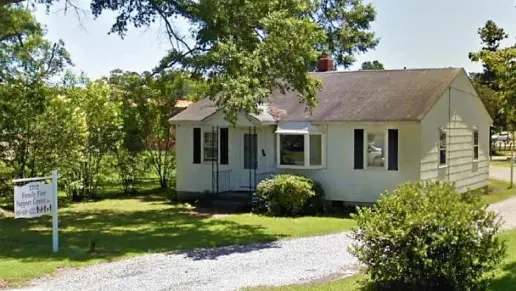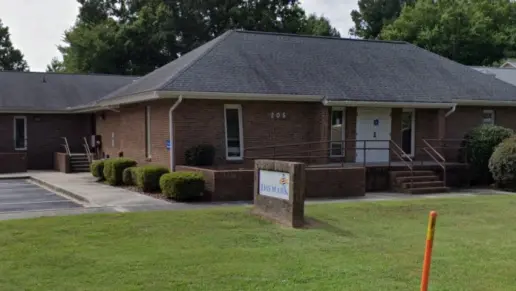About CooperRiis at Asheville
CooperRiis is a residential treatment program for adults with addiction and mental health disorders located in Asheville, North Carolina. It acknowledges the interconnectedness of these issues through a comprehensive approach.
You’ll be expected to maintain sobriety throughout your time in this program. They offer a supportive peer network to help with this process. They do not offer detox services or specifically address dual diagnoses, but their emphasis on primary mental health issues allows them to provide vital support if you have a co-occurring disorder.
You must have completed prior addiction treatment and maintained sobriety for 60 to 90 days to be eligible for treatment here. This requirement ensures that you’re prepared for the program’s demands and can fully engage in the integrated support they offer.
You’ll receive an Individualized treatment plan that addresses both mental health and substance use disorders. The multidisciplinary team of coaches, dietitians, psychiatrists and specialists exchange ideas and strategies. This team approach enables tailored interventions that respect your unique needs and recovery goals.
Psychoeducation is a crucial part of encouraging empowerment during recovery. In therapy led processing groups, you can openly discuss the challenges you’ve faced due to substance use. These discussions not only promote understanding but also the growth of strong peer support networks. Recovery groups can help you create personalized realistic plans for maintaining positive interactions after the program concludes.
Their drug and alcohol free residential campuses offer a supportive environment that emphasizes sobriety. During treatment you’ll focus on maintaining limited use or abstinence, finding coping mechanisms and accessing supportive resources to promote long term wellbeing.
Once you complete treatment they may provide aftercare services. These are designed to encourage long term success in sobriety. They may include continued counseling, support groups and referrals to community resources.
Latest Reviews
Rehab Score
Location
Location
Accepted Insurance
Other Forms of Payment
Private insurance refers to any kind of healthcare coverage that isn't from the state or federal government. This includes individual and family plans offered by an employer or purchased from the Insurance Marketplace. Every plan will have different requirements and out of pocket costs so be sure to get the full details before you start treatment.
Self-pay involves paying for treatment out of your own pocket. You can use savings or credit, get a personal loan, or receive help from family and friends to fund your treatment. If you don't have insurance or your insurance plan doesn't cover a specific program, self-pay can help ensure you still get the care you need.
Addiction Treatments
Levels of Care
Treatments
A combined mental health and substance abuse rehab has the staff and resources available to handle individuals with both mental health and substance abuse issues. It can be challenging to determine where a specific symptom stems from (a mental health issue or an issue related to substance abuse), so mental health and substance abuse professionals are helpful in detangling symptoms and keeping treatment on track.
Programs

Clinical Services
Experiential therapy is a form of therapy in which clients are encouraged to surface and work through subconscious issues by engaging in real-time experiences. Experiential therapy departs from traditional talk therapy by involving the body, and having clients engage in activities, movements, and physical and emotional expression. This can involve role-play or using props (which can include other people). Experiential therapy can help people process trauma, memories, and emotion quickly, deeply, and in a lasting fashion, leading to substantial and impactful healing.
Research clearly demonstrates that recovery is far more successful and sustainable when loved ones like family members participate in rehab and substance abuse treatment. Genetic factors may be at play when it comes to drug and alcohol addiction, as well as mental health issues. Family dynamics often play a critical role in addiction triggers, and if properly educated, family members can be a strong source of support when it comes to rehabilitation.
Group therapy is any therapeutic work that happens in a group (not one-on-one). There are a number of different group therapy modalities, including support groups, experiential therapy, psycho-education, and more. Group therapy involves treatment as well as processing interaction between group members.
In individual therapy, a patient meets one-on-one with a trained psychologist or counselor. Therapy is a pivotal part of effective substance abuse treatment, as it often covers root causes of addiction, including challenges faced by the patient in their social, family, and work/school life.
Life skills trainings involve all the skills a person must have in order to function successfully in the world. These include time management, career guidance, money management, and effective communication. Truly successful addiction recovery is based on the ability to not only live substance-free, but to thrive. Life skills teaches the practical necessities of functioning in society, which sets clients up for success in life, and therefore sobriety.
Accreditations

The Commission on Accreditation of Rehabilitation Facilities (CARF) is a non-profit organization that specifically accredits rehab organizations. Founded in 1966, CARF's, mission is to help service providers like rehab facilities maintain high standards of care.
CARF Accreditation: Yes
Contact Information
85 Zillicoa Street
Asheville, NC 28801





